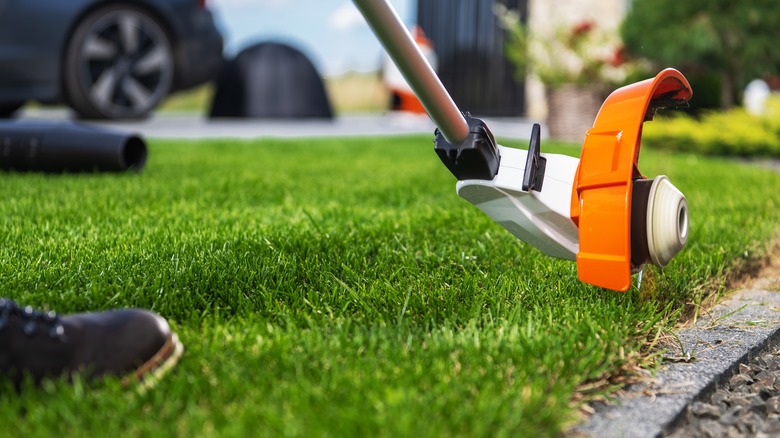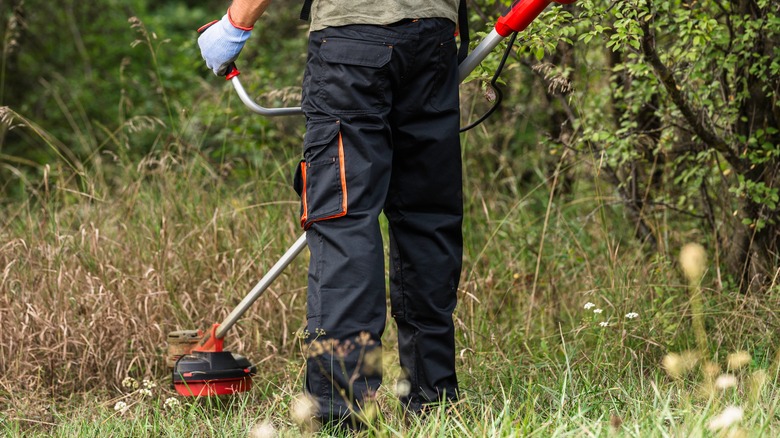Consider These Disadvantages To Battery-Powered Weed Eaters Before Buying
We may receive a commission on purchases made from links.
Looking for a new tool to keep your yard neat and tidy? Weed eaters — also known as weed whackers — may quickly become your best friend. These handy machines allow you to navigate tight spaces, trim bushes, and more. Due to their popularity, you may be eyeing a battery-powered option for your purchase. But before you commit to one, you should be aware of battery-powered machines' drawbacks like low charges, less strength, balance issues, and more.
Battery-powered weed eaters have become more popular in recent years, partially thanks to their convenience and affordability. But sometimes, convenience comes at a cost. While you don't have to worry about gas or oil changes, many weed eater batteries have charges ranging from only 15 to 45 minutes. That may be enough for a couple of acres, but any more, and you'll need to pause the job for a charging break. And remember that some tasks, like edging your lawn, will drain the battery faster.
Additionally, these weed eaters have less power compared to most gas models, and the battery's weight may impact its balance. If you regularly need to tackle thick vegetation, a battery-powered option may not hold up to the job. You also have to remember that batteries don't last forever. In fact, most quality options only last between 3 to 7 years. When your battery dies, you must ensure it is properly disposed of by taking it to a proper recycling facility or following the manufacturer's recommendations.
Battery-powered weed eaters aren't all bad, though.
For people who need to cover huge plots of land or deal with tough vegetation, a battery-powered weed eater may leave a lot to be desired. But these tools didn't become popular without reason. If you just want to cut down on maintenance time for a regular residential lawn, then they still have some advantages.
For example, batteries are typically quieter than gas models. That's not only a huge bonus to your own ears, but it's great if you're surrounded by neighbors. These models require less maintenance than their gas counterparts, too. You don't have to worry about oil changes, replacing spark plug filters, and other tasks. They're also more environmentally friendly than using gas as long as you properly dispose of your old batteries.
Perhaps most importantly, battery-powered weed eaters are a budget-friendly option. For example, this Stihl weed trimmer that packs a punch only costs around $300 from Ace Hardware. Alongside initial costs, you'll save money on gas, oil, and other maintenance. No matter if you go with gas or battery, though, avoiding common weed eater mistakes and using handy tips, like soaking your weed eater string, can help you get the most out of your machine.

